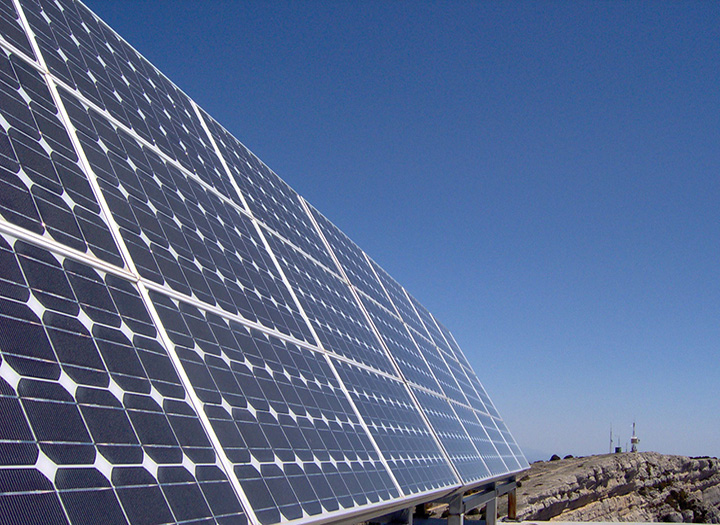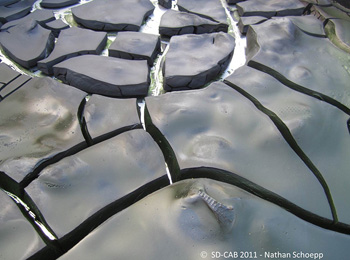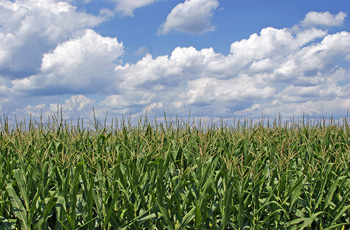Course Seeks to Educate World about Sustainable Food and Energy Issues
February 21, 2013
By Kim McDonald

Solar panels in Spain
Credit: Wikimedia
A free online course is being developed at UC San Diego to educate students and anyone else around the world with a computer and an internet connection about the challenges and potential solutions for meeting the global demands of food and fuel in the 21st century.
Called “Our Energy Future,” this Massive Online Open Course, or MOOC, is being supported by a $50,000 grant from Google and will use Google’s suite of web-based tools to encourage social interactions inside and outside of the virtual “classroom.”

Algae drying at UC San Diego
Credit: Nathan Schoepp, SD-CAB
Stephen Mayfield, a professor of biology and co-director of UC San Diego’s Center for Food and Fuel for the 21st Century, a research entity designed to apply basic research to sustainable food and biofuel production, is heading the effort to develop the MOOC, which he expects to be online later this year. He said that as the world’s population grows from seven billion people to an estimated nine billion by 2050, creative solutions will be needed to meet the growing demands for food and fuel.
“We realize the importance of leading the world in creating a sustainable energy future for all societies, including those of the developing world,” said UC San Diego’s Chancellor Pradeep K. Khosla. “This course will allow students from many countries and economic levels an opportunity to offer new ideas, explore local solutions and apply their collective knowledge to propose sustainable 21st century energy projects.”
Mayfield said students and others will be educated about the global demands for food and fuel through lectures delivered by UC San Diego experts in the fields of engineering, biology, chemistry, physics, economics, climate science and social science. Then scholars, policymakers and others from around the world will be linked through the MOOC portal to discuss and develop solutions.

Cornfield in Ohio
Credit: Wikimedia
“As part of the MOOC,” Mayfield said, “small groups of students will team up to propose a site appropriate, cutting-edge clean energy project in any location, which could produce a significant amount of energy for that population, be economically sustainable and have positive environmental and social impacts.”
Students will be able to obtain credit for completing the course through UC San Diego Extension. In addition, the MOOC will develop a series of lay-language lectures to educate everyday citizens about the problems and solutions of our food and energy future.
“This course will cover the current production and utilization of energy, as well as the consequences of this use, examining finite fossil energy reserves, how food and energy are linked, impacts on the environment and climate, and the social and economic impacts of our present energy and food production and use,” Mayfield said. “After the introductory lectures, we will examine the emerging field of sustainable energy, fuel and food production, emphasizing the importance of developing energy efficient and sustainable methods and how these new technologies can contribute to replacing the diminishing supplies of fossil fuels and reduce the carbon dioxide release into the environment.”
